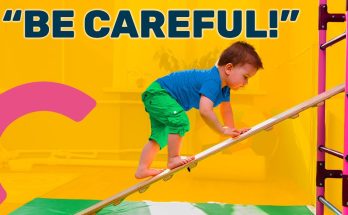Every parent wants to give their baby the best possible start in life. The first year is crucial for development, as your baby grows physically, mentally, and emotionally. However, certain common mistakes can hinder their progress. To help your little one thrive, here are 7 must-know tips for better baby development—along with the mistakes you should avoid.
1. Encourage Tummy Time Daily
Why It’s Important:
Tummy time is essential for strengthening your baby’s neck, shoulders, and core muscles. It also helps prevent flat head syndrome (plagiocephaly) and promotes motor skills like rolling over and crawling.
What to Do:
- Start tummy time from day one, even if it’s just for a few minutes.
- Place your baby on a firm, safe surface, like a playmat or your chest.
- Engage them with toys, mirrors, or your voice to make it fun.
Mistake to Avoid:
Many parents skip tummy time because their baby dislikes it. However, avoiding tummy time can slow down muscle development and delay motor milestones. If your baby fusses, start with short sessions and gradually increase the duration.
2. Talk and Sing to Your Baby Often
Why It’s Important:
Babies start learning language from birth, and the more you talk to them, the faster they develop communication skills. Even if they don’t understand words yet, they pick up on sounds, tones, and patterns.
What to Do:
- Describe daily activities, like changing diapers or feeding.
- Sing nursery rhymes or read books with expressive voices.
- Pause and wait for your baby to “respond” with coos or babbles.
Mistake to Avoid:
Many parents assume babies are too young to understand speech, but exposure to language is critical for brain development. Avoid excessive screen time, which can limit real-world interactions.
3. Provide Safe and Stimulating Toys
Why It’s Important:
Toys help with sensory development, motor skills, and problem-solving abilities. The right toys can stimulate curiosity and encourage independent play.
What to Do:
- Offer age-appropriate toys like rattles, textured balls, and soft books.
- Rotate toys regularly to keep your baby engaged.
- Let your baby explore different textures and shapes safely.
Mistake to Avoid:
Overloading a baby with too many toys at once can be overwhelming. Instead, introduce a few at a time and switch them out to keep things interesting.
4. Establish a Consistent Sleep Routine
Why It’s Important:
Good sleep is crucial for brain development, immune function, and mood regulation. A well-rested baby is more alert, happier, and ready to learn.
What to Do:
- Follow a bedtime routine with soothing activities like baths, lullabies, or gentle rocking.
- Keep the room dark and quiet during nighttime sleep.
- Encourage daytime naps in a consistent sleep environment.
Mistake to Avoid:
Inconsistent sleep schedules can lead to overtiredness, making it harder for your baby to settle. Avoid keeping your baby awake too long, as overtiredness can make sleep struggles worse.
5. Encourage Physical Activity
Why It’s Important:
Movement is essential for developing coordination, balance, and strength. Babies who have the freedom to move and explore develop motor skills faster.
What to Do:
- Give your baby plenty of floor time instead of keeping them in swings or seats for long periods.
- Encourage reaching, kicking, and grasping by placing toys slightly out of reach.
- Support sitting, crawling, and standing activities as they grow.
Mistake to Avoid:
Extended use of baby gear like bouncers, walkers, or swings can limit movement and slow motor development. Babies need unrestricted time to explore their surroundings.
6. Respond to Your Baby’s Cues and Emotions
Why It’s Important:
Babies rely on their caregivers for emotional security. When parents respond to their needs, babies develop trust, which is the foundation for healthy emotional and social development.
What to Do:
- Pay attention to your baby’s hunger, sleep, and comfort cues.
- Offer comfort when they cry; it builds security, not dependence.
- Make eye contact and use facial expressions to communicate warmth and love.
Mistake to Avoid:
Ignoring or delaying responses to a baby’s needs can lead to stress and anxiety in infants. While it’s okay to encourage self-soothing gradually, young babies need consistent reassurance.
7. Offer a Variety of Sensory Experiences
Why It’s Important:
Babies learn through their senses—touch, taste, sight, sound, and smell. Exposure to different sensory inputs helps their brain form strong connections.
What to Do:
- Let your baby feel different textures (soft, rough, smooth).
- Introduce them to different scents, like fresh flowers or mild spices.
- Play music, let them hear nature sounds, or give them safe household objects to explore.
Mistake to Avoid:
Keeping a baby in the same predictable environment all the time can limit their sensory experiences. However, overstimulation—too much noise or activity—can make them fussy, so find a balance.
Final Thoughts
Your baby’s first year is filled with rapid growth and learning. By following these seven essential tips, you can support their physical, emotional, and cognitive development while avoiding common mistakes. Every baby is unique, so observe their cues and adjust accordingly. The most important thing? Show love, patience, and encouragement—your baby will thrive with your care and attention!



